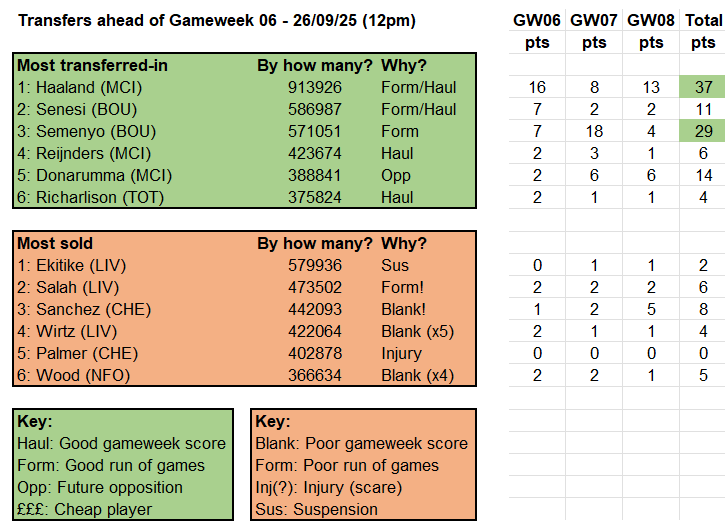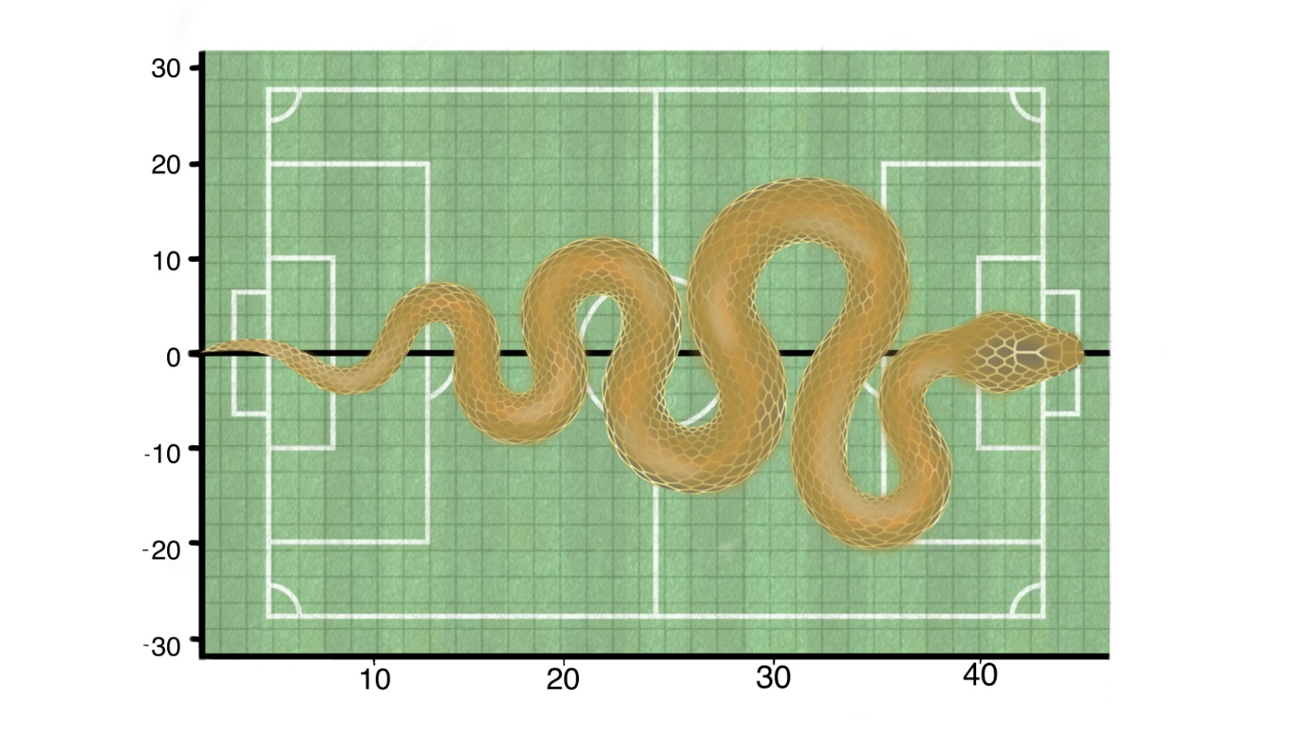As a journalist, I know I should view each fresh page as an opportunity and not a challenge but there have been plenty of times in what passes for my career where that has really not been the case. I did work out quite early on it is best just to start writing – or as I read the other day ‘You can always edit a bad page; you cannot edit a blank one’ – but, oh, that first sentence can be tough.
In Fantasy Football, on the other hand, creating a team at the start of a season has rarely been an issue – hey, within a week of the game going live each year, I will have created dozens. That, of course brings its own problems: the second-guessing and what-might-have-beenery – for which the ‘Herd-watch’ tables below are intended as some sort of relief – and, by extension, holding true to plans you made only a few weeks earlier.
Just this week, though, I came across an investment technique that genuinely seemed to help – and with some irony, at least by Alannis Morissette’s standards, it is the blank-sheet review. Looking back at the BotNAV project – may it rest in peace – one of its minor failings was that while Adam and I were always keen to hear such tips from our podcast guests, we were far less diligent putting any of them into practice.
To be fair to us, in a game that moves pretty quickly within its 10-month cycles, there is probably limited utility in such portfolio-manager stalwarts as the pre-mortem, the after-action review and the splendidly named ‘Ulysses contract’. Equally, we were good – possibly too good – at seeking the outside view and creating and implementing some useful portfolio rules of thumb.
Still, I have a sneaking suspicion we could have been better at, say, keeping some sort of written journal, using a checklist, tracking and scoring our decisions and thinking about base rates – all of which are splendid in isolation, perfectly feasible in theory and, predictably enough, a whole lot trickier to execute in practice and in unison. The blank-sheet review, however, seemed to do the trick.
Not, to be clear, for MeanReversionMachine, which – as it is always worth pointing out – is merely a benchmark of the most-owned players in the FPL game (and to which, of course, I am merely an adviser); but for my own team, which I wildcarded in gameweek 7 and bench-boosted in gameweek 8. Both of which went as well as I had any right to hope – and yet … there are always nagging doubts, are there not?
Distinctly Minteh
Should I really have picked Minteh over, say, current FPL midfield darlings Enzo or Sarr? Time will tell – it always does – but the blank-sheet review at least reminded me that Brighton’s upcoming fixtures are every bit as attractive as those of Chelsea and Palace. And, yes, Gabriel and Timber are probably the most sensible pair of Arsenal defenders to pick – but Calafiori and Timber are more exciting, right? Thank you again, blank sheet.
My worst decision – clearly with the benefit of 20/20 hindsight – was settling on the Newcastle/Sunderland pairing of Woltemade and Xhaka over Gordon and Isidor. That has cost me a dozen points over the last two weeks – and I am not saying my resolve will hold past this weekend. Again, though, testing my wildcard decisions against a blank-sheet portfolio reminded me Gordon was not a stupid pick. OK, Isidor probably was.
Returning to MeanReversionMachine, last week’s solid showing stemmed from the recent elevation to the index of Gabriel – now the game’s most-owned defender – and our selfless/pedantic insistence on playing Dubravka as the game’s most-owned goalkeeper. Oh – and, of course, as we flagged last time out, by finally being able to captain Haaland as the games most-owned player:
“Sooner or later, Salah is going to give his millions of sellers cause for regret but, as things stand, the herd’s decisions are largely still paying off.
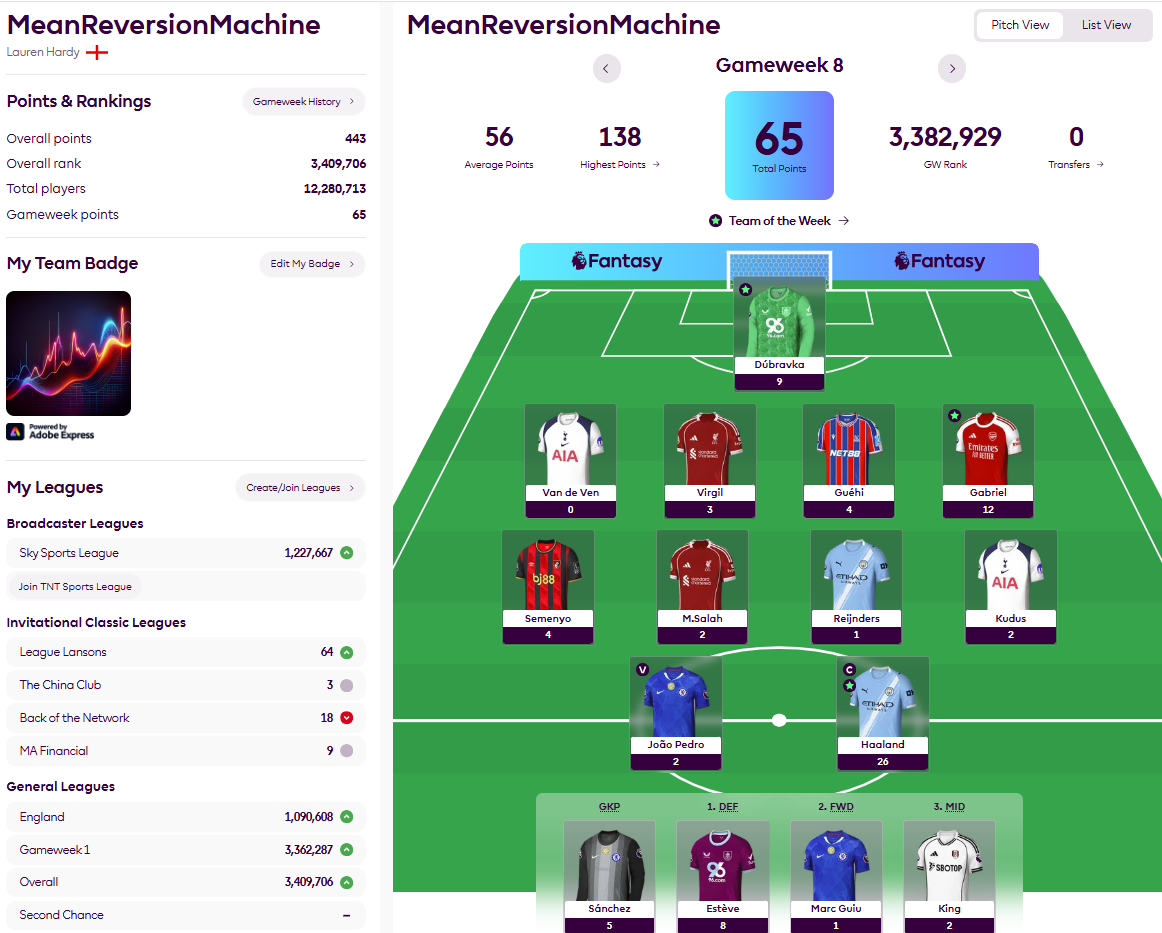
I also mentioned last week my uncertainty around any sort of index-based rule that could help me decide when to play the benchboost chip. As you can see, last week would not have been the worst time to do so – though I suspect Guiu and King may well have their moments in the sun over the coming weeks. When we rebalance the index next week, the budget pairing should survive but Virgil will in all probability be replaced by Senesi:
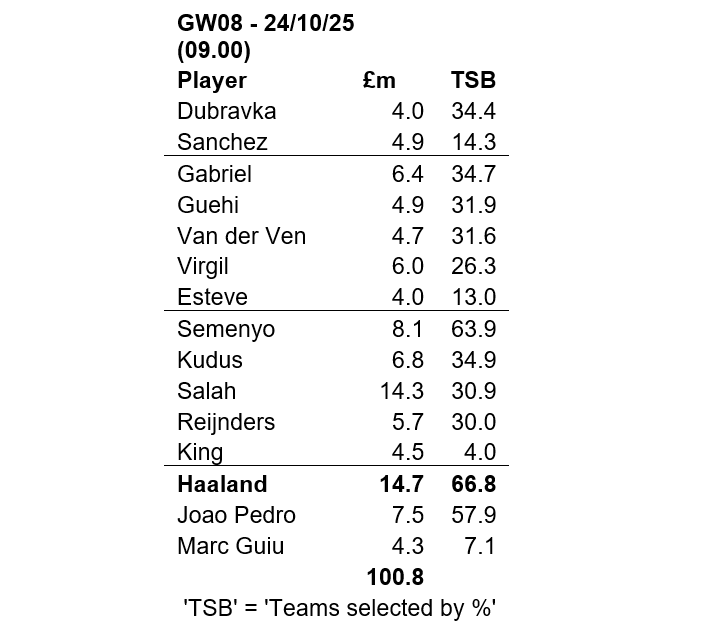
Source: Fantasy Premier League
And what about Salah, who as you can see from our final quartet of tables, has been the most-sold player in each of the last three gameweeks? With his total ownership having dropped from 55% at the start of the season to 31% as I type, the main factor keeping FPL’s greatest-ever asset in our index is as likely to be his presence in many now-inactive teams as the wider market’s continuing uncertainty on whether to back, say, Saka or Bruno.
Sooner or later, Salah is going to give his millions of sellers cause for regret but, as things stand, the herd’s decisions are largely still paying off. Haaland, Semenyo and Gabriel continue to reward their legions of recent buyers while, on the other side of the ledger, only those who offloaded Cucurella in bulk ahead of gameweek 7 (and two Chelsea clean sheets) are likely to be suffering much in the way of buyer’s remorse:
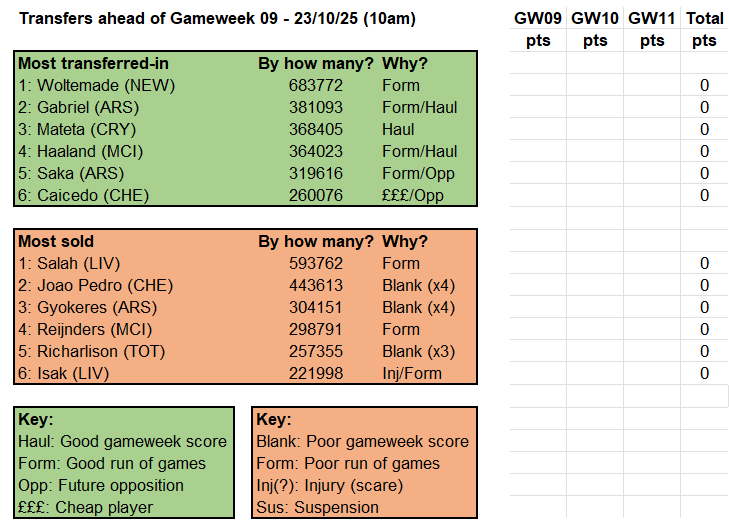
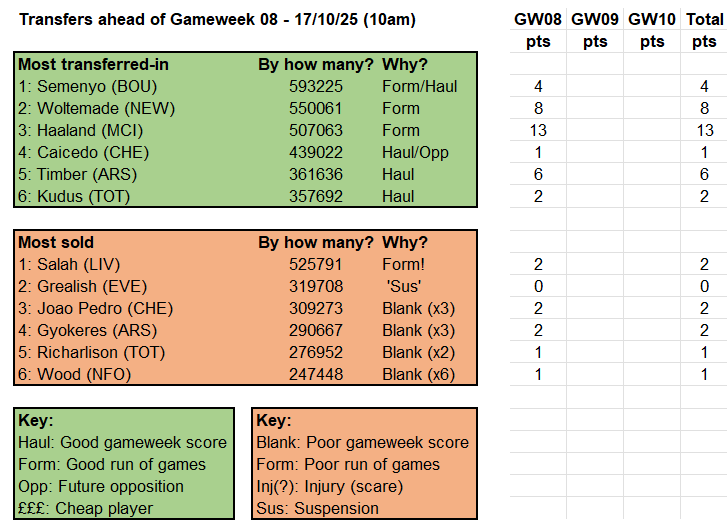
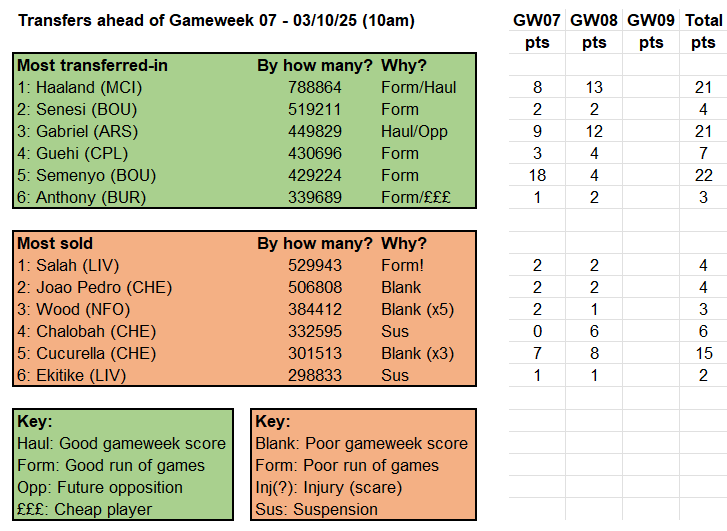
Source: Fantasy Premier League
